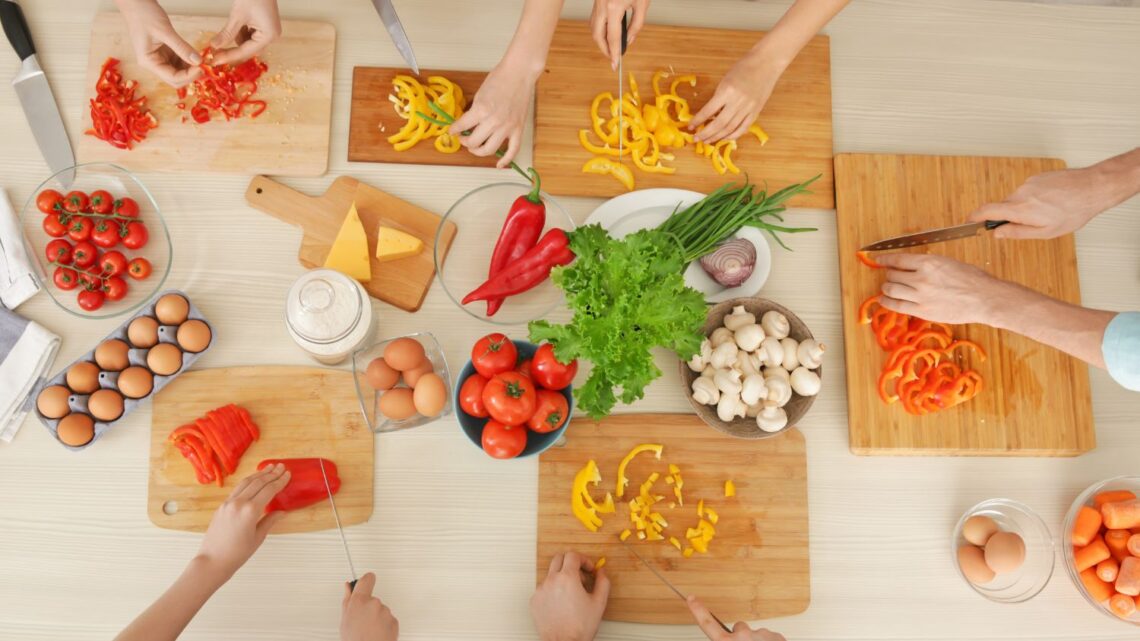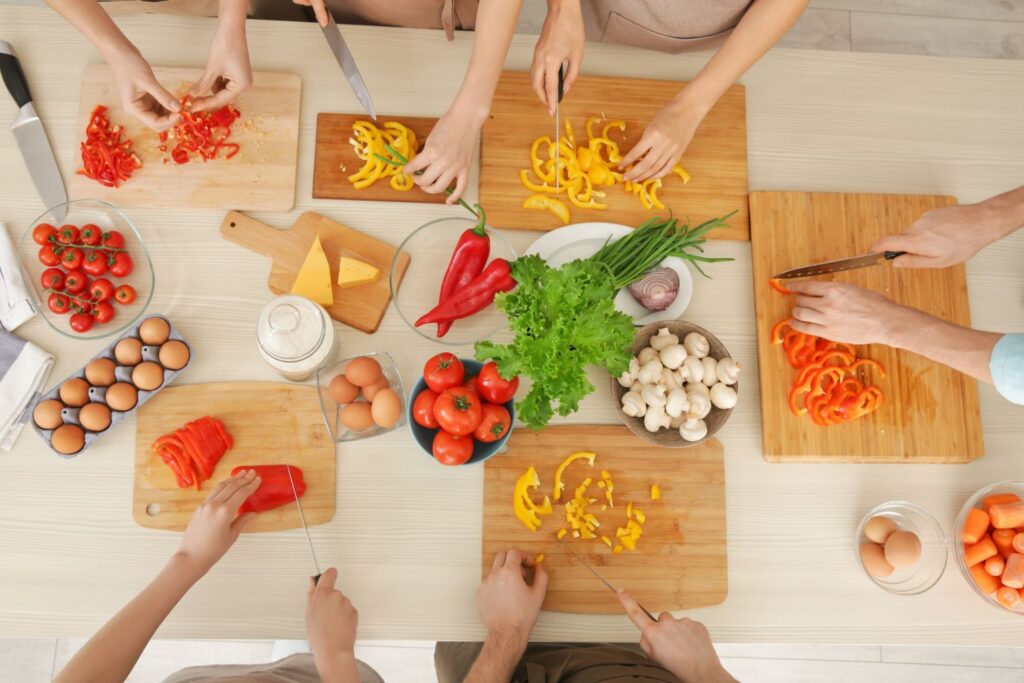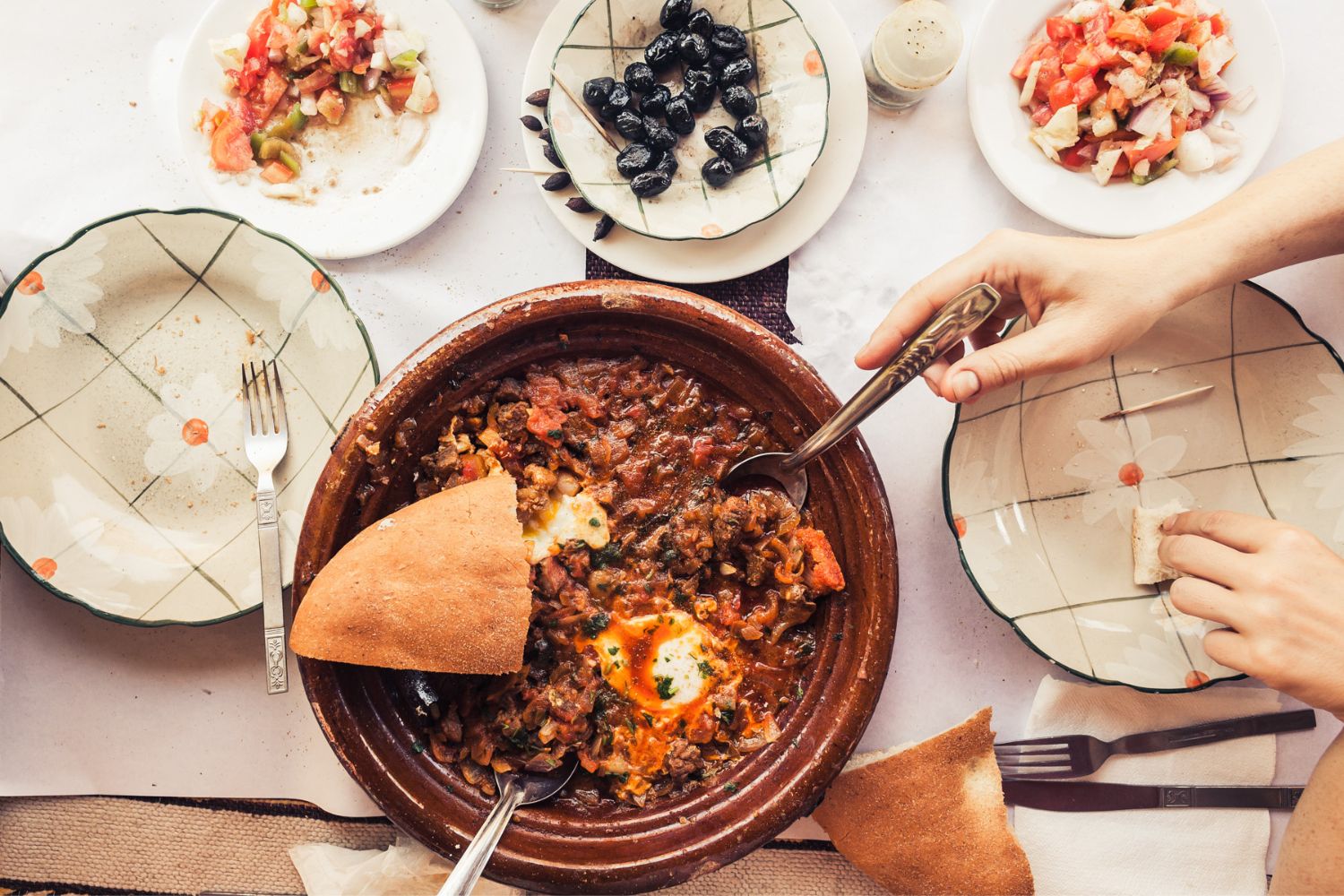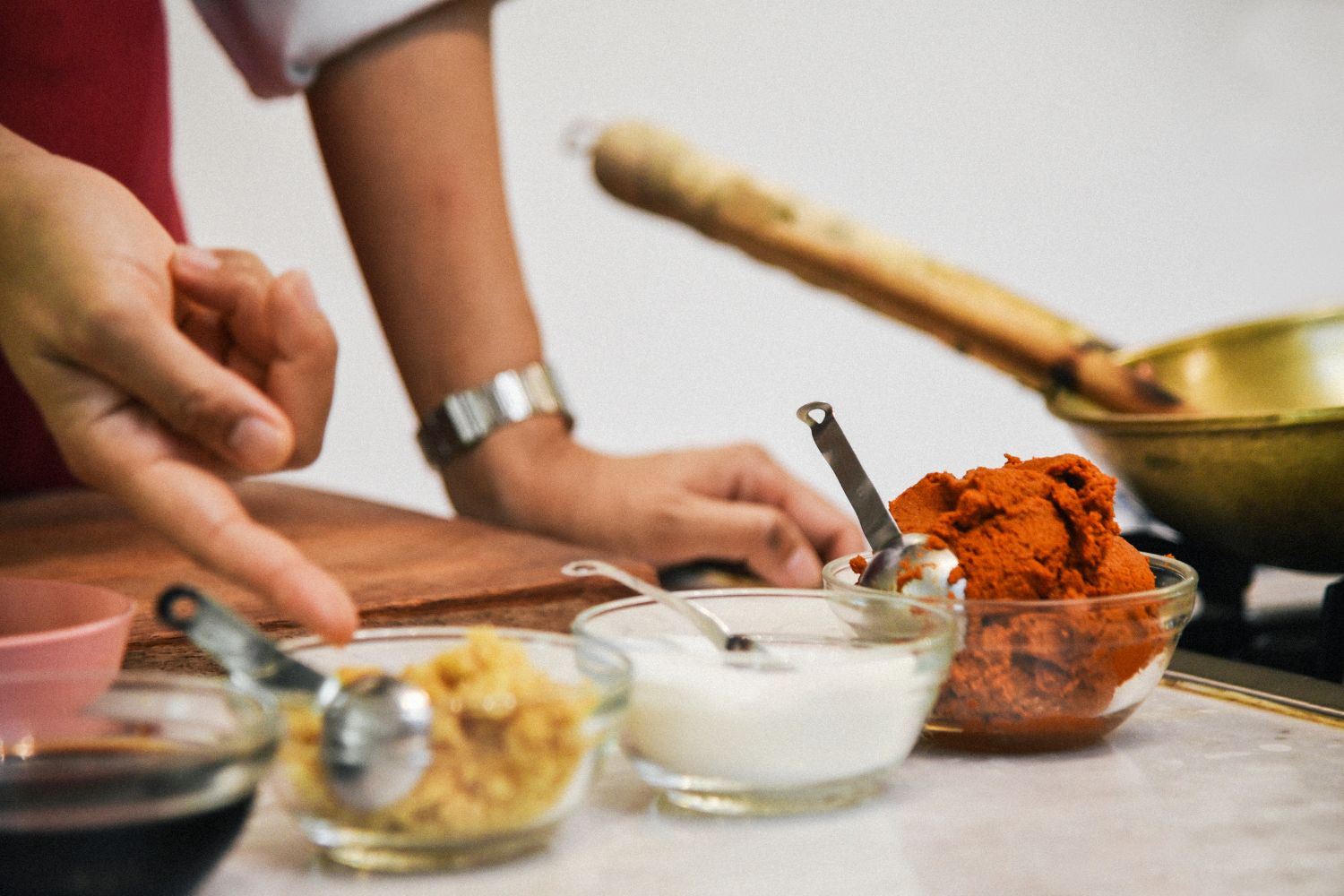

Cooking Class in Morocco
A cooking class in Morocco typically refers to a structured educational experience where participants, often tourists, learn to prepare traditional Moroccan dishes under the guidance of experienced local cooks or chefs. These classes usually take place in settings ranging from traditional riads to modern cooking schools equipped with kitchen facilities. Participants engage in hands-on activities, including selecting ingredients from local markets, learning about Moroccan spices and cooking techniques, and preparing dishes such as tagine, couscous, pastilla, and various salads and breads. Beyond culinary skills, cooking classes in Morocco often incorporate cultural insights, showcasing the significance of food in Moroccan society and traditions.
A Guide to Cooking Classes

Taking a cooking class in Morocco is a fantastic way to immerse yourself in the country’s rich culinary traditions. Here are some steps you can take to find and enjoy a cooking class in Morocco:
- Choose a Location: Decide which city or region in Morocco you’ll be visiting. Popular cities for cooking classes include Marrakech, Fes, and Casablanca, among others.
- Research Cooking Schools: Look for reputable cooking schools or workshops that offer classes to tourists. You can find these through travel websites, tour operators specializing in culinary experiences, or local recommendations.
- Check Reviews: Read reviews from other travelers to get an idea of the quality and authenticity of the classes offered.
- Book in Advance: Classes can fill up quickly, especially during peak tourist seasons. It’s a good idea to book your class in advance to secure your spot.
- Prepare to Learn: Moroccan cuisine often involves a blend of spices and traditional cooking techniques. Be prepared to learn how to prepare dishes like tagine, couscous, pastilla, and more.
- Enjoy the Experience: classes in Morocco are not just about learning recipes; they often include visits to local markets to buy ingredients and insights into Moroccan culture and hospitality.
- Ask Questions: Don’t hesitate to ask questions during the class about ingredients, techniques, or even tips for recreating the dishes at home.
- Take Away Recipes: Many classes provide recipe cards or booklets so you can recreate the dishes back home.
- Share the Experience: Cooking classes are often social experiences where you can meet other travelers and share a meal together after cooking.
- Review Your Experience: After the class, consider leaving a review to help other travelers find quality cooking classes in Morocco.
Essential Advice for Taking Cooking Classes in Morocco

Here are a few more aspects to consider when planning a cooking class experience in Morocco:
- Specialized Classes: Some cooking schools offer specialized classes focusing on particular aspects of Moroccan cuisine, such as vegetarian or vegan dishes, regional variations, or festive dishes for celebrations like Eid.
- Interactive Demonstrations: In addition to hands-on cooking, some classes may include interactive demonstrations of techniques such as making traditional bread (like khobz) or pouring tea in the Moroccan style.
- Hospitality and Tea Rituals: Moroccan hospitality is often highlighted during cooking classes, where you might learn about the Moroccan tea ceremony (Atay) and the art of pouring mint tea.
- Local Instructors: Learning from local instructors provides an authentic perspective on Moroccan cooking techniques and cultural practices associated with food preparation.
- Photography and Documentation: Many cooking classes allow you to take photos during the experience, documenting your culinary journey and the beautiful dishes you create.
- Accompanying Cultural Activities: Some cooking classes are part of broader cultural experiences that include activities like henna painting, traditional music performances, or visits to historical sites related to Moroccan cuisine.
- Seasonal Ingredients: Depending on the time of year, cooking classes may emphasize seasonal ingredients and how they influence traditional Moroccan recipes.
- Cooking Class Packages: Tour operators sometimes offer packages that combine cooking classes with accommodation, guided tours, or other cultural activities, providing a comprehensive Moroccan experience.
- Safety and Hygiene: Reputable cooking schools prioritize safety and hygiene standards, ensuring a comfortable and enjoyable learning environment.
- Local Insight: Beyond cooking techniques, instructors often share insights into Moroccan culinary traditions passed down through generations, enriching your understanding of Moroccan culture.
- Typical Dishes: Cooking classes often focus on preparing traditional Moroccan dishes such as tagine (slow-cooked stews), couscous (steamed semolina), pastilla (a savory pastry), and various salads and breads.
- Hands-On Experience: Classes are typically hands-on, allowing you to participate in preparing and cooking the dishes under the guidance of experienced chefs or local cooks.
- Ingredients and Spices: You’ll learn about the key ingredients and spices used in Moroccan cuisine, such as saffron, cumin, ginger, cinnamon, and preserved lemons, and how they contribute to the unique flavors.
- Cultural Insights: Cooking classes often include insights into the cultural significance of food in Moroccan society, including traditions around meal preparation and dining etiquette.
- Market Visits: Some classes may include visits to local markets (souks) where you’ll select fresh ingredients, spices, and other culinary items needed for the recipes.
- Setting and Atmosphere: Classes can take place in various settings, from traditional riads (Moroccan houses with interior courtyards) to modern cooking schools equipped with professional kitchens.
- Language: Depending on the class, instruction may be provided in English, French, or Arabic. Make sure to check the language options when booking.
- Duration: Cooking classes typically last a few hours, allowing you to learn and prepare a complete meal from start to finish.
- All Skill Levels: Classes cater to all skill levels, from beginners to experienced cooks, so everyone can participate and enjoy the experience.
- Personalized Experience: Some cooking schools offer private or customized classes, where you can focus on specific dishes or dietary preferences.
- Memorable Souvenir: The recipes and skills you learn during the class can be a lasting souvenir of your trip to Morocco, allowing you to recreate Moroccan flavors at home.
If you’re planning to participate in a cooking class in Morocco, consider what aspects of Moroccan cuisine and culture interest you the most, and look for a class that aligns with your preferences. Let me know if there’s anything else you’d like to explore about Moroccan cuisine or travel experiences!